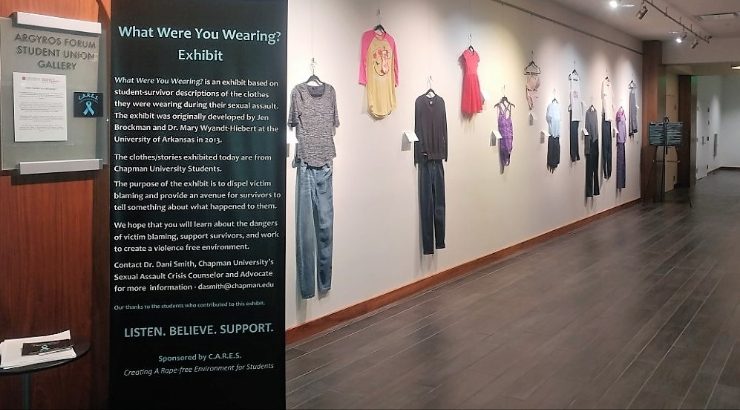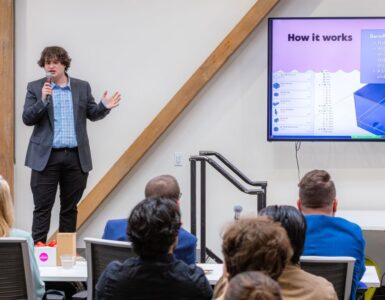April is Sexual Assault Awareness Month, and at Chapman University that usually means a full lineup of events like Take Back the Night marches and film screenings to raise awareness and offer education around the challenge of preventing sexual violence.
This year most such activities are on hold as the campus transitions back to in-person instruction and operations. But the folks at Chapman who offer support and resources want every member of the campus community to know they are still available and ready to offer any help needed – and to emphasize that everyone also has a right to feel safe online.
Support for Sexual Assault Survivors
“SAAM is a crucial opportunity to demonstrate our steadfast solidarity with survivors and continue our efforts as agents of change. To this end, we’re still here, working diligently to support our community, even in the virtual environment. We recognize that support is an essential part of healing and navigating this work together as a community,” says Albert Roberson, equal 0pportunity and diversity officer at Chapman.
Indeed, as the virtual world has become more popular, it can present new challenges. The problem is widespread enough that the National Sexual Violence Resource Center has made building online safe spaces a special focus of Sexual Assault Awareness Month.
No one should underestimate the impact of online violence, says DeAnn Yocum Gaffney, associate vice chancellor and associate dean of students for student affairs. Just because immediate physical harm does not occur, online sexual violence, harassment and assault is still a traumatic event, and anyone experiencing it is encouraged to report it, she says.
Sexual Violence in Virtual Environments
“It can feel like it’s an anything-goes space, but that’s not true. For those who may have experienced something, they should feel free to report it,” Yocum Gaffney says. “Sometimes the initial response is, ‘Oh, is that even a problem?’ They kind of start self-blaming. Recognizing it online can be trickier. You start gaslighting yourself, to some extent.”
And just as with in-person assaults, reporting an online incident doesn’t mean a formal complaint has to be filed.
“We have a lot of help, counseling and support available, and that doesn’t mean anyone has to file a formal complaint,” she says.
Prevention is another focus at Chapman. That’s the work of Dani Smith, director of P.E.E.R. (Proactive Education Encouraging Responsibility) and health education. A licensed therapist, Smith is the university’s sexual assault crisis counselor and advocate and also directs the outreach and education aimed at helping the campus community learn how they can help combat a problem affecting colleges and universities across the country.
Popular program offerings she makes available to any campus group, large or small, are online screenings of the “The Hunting Ground,” a 2015 documentary about campus sexual assault and proactive solutions. The university purchased a screening license so the film can be shared with interested groups.
“I’m all about prevention,” she says. “But I also want students to know that we’re here to support and help them when they need us.”
Resources for Help, Education and Support
Numerous other resources are always available to the Chapman community, including:
- Student Psychological Counseling Services helps students function effectively in the university environment as they pursue personal and academic goals. Counseling at SPCS offers students the opportunity to look at themselves, their environment and their relationships and facilitate positive change to enhance their emotional, relational and psychological well-being.
- Fish Interfaith Center offers support to every student and member of the Chapman Family. The Interfaith Center offers Listening Windows to connect with Fish Interfaith chaplains who will listen to concerns and offer support in a safe, judgment- and guilt-free space.
- CU Health and Wellness provides a centralized location for students, faculty and staff to access Chapman health and wellness resources, tools and events.
- P.E.E.R. is dedicated to educating students regarding subjects of sexual assault, domestic violence, alcohol abuse and other general health issues.
- Public Safety’s 24-hour dispatch is always available at (714) 997-6763.




